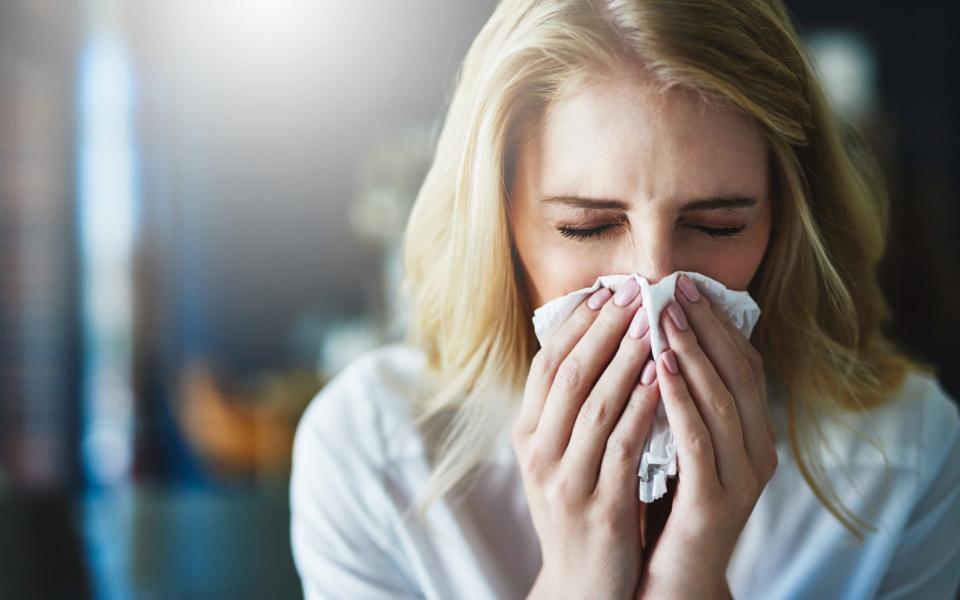Pandemic sends demand for cold and flu remedies to record low

Sales of cold and flu medicine have plunged by half over the past 12 weeks as winter sniffles are all but eliminated by social distancing and mask wearing.
Sales of cold and flu products such as cough liquids, decongestants and throat lozenges fell from £132.8m to £66.3m in the 12 weeks to 21 February compared with the same period last year, figures from data experts Kantar revealed - the biggest drop on record.
Overall 8.5m fewer shoppers have bought cold and flu remedies in the past 12 months than a year earlier.
Consumer goods firms including Lemsip owner Reckitt Benckiser and Procter & Gamble, which owns Vicks, have reported a collapse in demand for winter remedies in recent months as social distancing restrictions and increased sanitisation procedures curtail the spread of the common cold.
Public Health England data surveys have not detected a single case of flu this year, with infection rates over the past months at record lows.
Consumers are also taking preventative measures to boost their immune systems, Kantar said, with a record number of vitamins sold. Vitamin D has been particularly popular as people stay at home more, with sales up by 89pc over the year.
Matt Maxwell at Kantar said the number of people buying cold and flu products in bulk last March in anticipation of the first lockdown meant that many households already had well-stocked medicine cupboards.
He said: “Sales of cold and flu remedies in March 2020 were up by 22pc, which is unseasonably high.
“These aren’t products we use on a daily basis - they’re only used if you have a cough or a cold. It means there is likely to be a number of people that took these measures to stock up but haven’t actually used this medicine yet.”
Mr Maxwell said sales of winter cold and flu remedies are likely to remain subdued for some time amid a permanent shift to home-working and increased hygiene standards.
He said: “It's going to be a challenging time for the category going ahead.
“Our priorities have shifted more toward looking after ourselves and looking after our hygiene which is going to have a huge role to play in preventing the spread of the cold.
“It's likely that we are going to adapt to washing our hands as part of our daily routine a lot more than we ever have so the levels of the common cold will be potentially lower, meaning that people don't necessarily need to stock up on medicines as often.”
